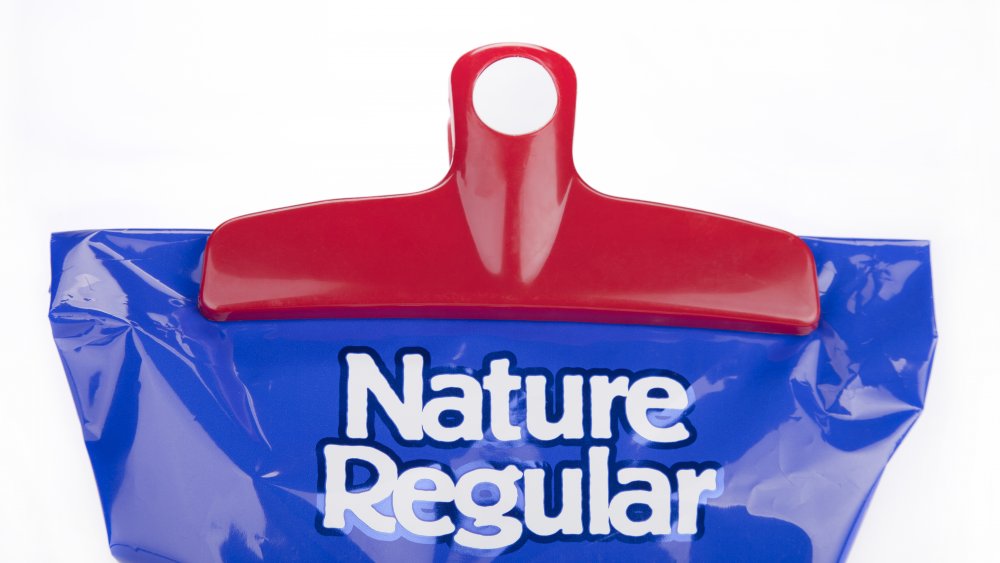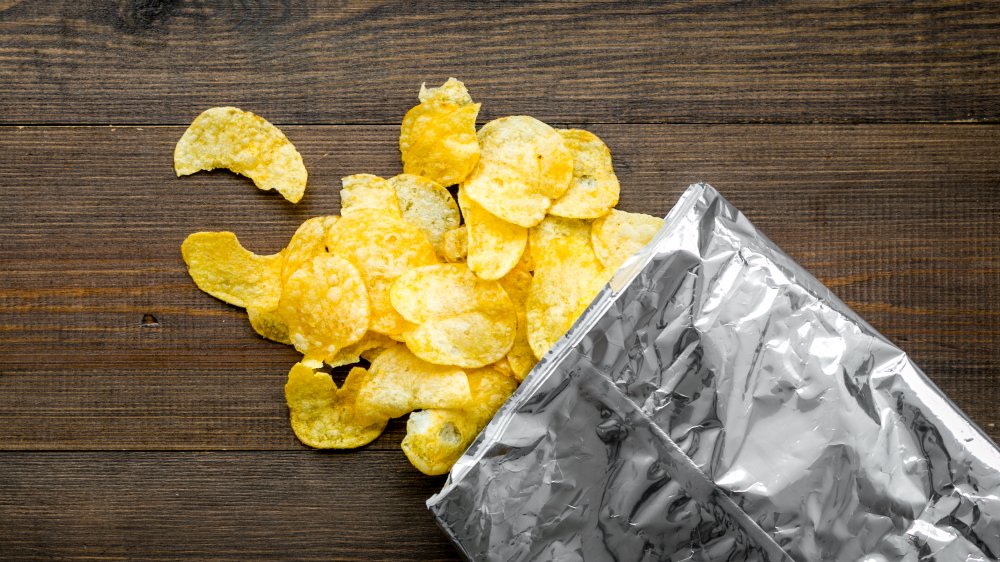You've Been Storing Potato Chips Wrong Your Entire Life
How much thought do you put into storing your potato chips? Maybe a chip clip, but other than rolling up the bag and shoving it in the back of the kitchen pantry, you probably don't devote a ton of brainpower to it, right? Here's the thing though: Your chips are never going to taste better than when you first rip open that bag and bite into that first crunchy chip. Even just a day later, they're probably not going to taste quite as fresh and a week later — well, the word "crisp" is no longer even in the picture.
We're not here to hate on the chip clip, but there's a better way out there to store your chips and it's about time you put it into practice.
Make sure you roll your chip bag right
Rolling up a bag of chips certainly isn't rocket science — or any sort of science, for that matter. There is a better way to do it, though, than simply rolling up the bag's opening without any sort of thought whatsoever. You're going to want to make sure you get as much air out of the bag as possible and that all the chips are in the bottom of the bag. Oxygen is the enemy of a crisp chip, so we don't want excess air in the bag (via YouTube).
Once all of the chips are in the bottom of the bag, fold both of the bag's corners inward making a point, like you would if you were making a paper airplane. Now roll the fold over so that the seams of the bag are wrapped up in the center. Clip your bag in the center and those chips will stay fresh longer.
No chip clip? No problem
Sometimes life throws you a curve ball and you find yourself with a bag of chips and no chip clip. Now what? Well, you could eat the entire bag, but then you would be chipless later and that's not good. Rather than wad up the chip bag and end up with stale chips the next day, you can apply a bit of origami to your bag of chips and rest assured that they'll be fresh and waiting for you when you're ready to snack again.
Just as in the previous method we discussed, get all the air out of the bag and fold the top of the bag's two corners inward. Roll the top of the bag down until you reach the chips inside. This is where you would normally put the chip clip, but you'll now use your thumb to roll both edges inside out (via YouTube). Each end of the roll should now have two small pockets that keep the bag from unrolling. Presto! Your chips are now sealed up fresh with the bag itself locking out any air.
The best place to store them isn't in the pantry
Now that you know the best way to roll up that bag of chips, you're well on your way to a better-tasting chip the next time you grab them. The next part of the equation, though, is where to store them. If you know for sure that you're going to be snacking on them again in a matter of mere hours, then sure, the pantry is fine. But what if you want to put your will power to the test — or you have a cartoonishly huge bag of chips that you don't plan on finishing for weeks or even months?
If that's the case, then the kitchen pantry is not the best place to store that delicious bag of Doritos. You're going to want to put those chips in the freezer. Yep, this might seem like the wrong way to use your freezer, but it's most certainly the best place for chips in this case. It doesn't matter what type of chip you have — throw them in the freezer and they'll stay fresh almost indefinitely (via Lifehacker).
Why does the freezer method work?
The freezer might seem like an odd place to keep your chips, but chips stay fresh the best when they're in a sealed dry place, and guess what? Your freezer is probably the most sealed and dry place in your kitchen.
While it sounds weird, your chips won't totally freeze — they'll just get really cold, like a bottle of liquor would. This is because during the cooking process, most of the moisture is cooked out of the potato or corn. Sally Mitchell of the American Chemical Society suspects that the small amount of water left in the chip is just enough to prevent its starches from breaking down. "When you put [potato chips] in the freezer, the water content is very low and it probably just freezes the residual water," Mitchell told Lifehacker.
A better way to seal and store your chips? Sounds like a life win to us.




